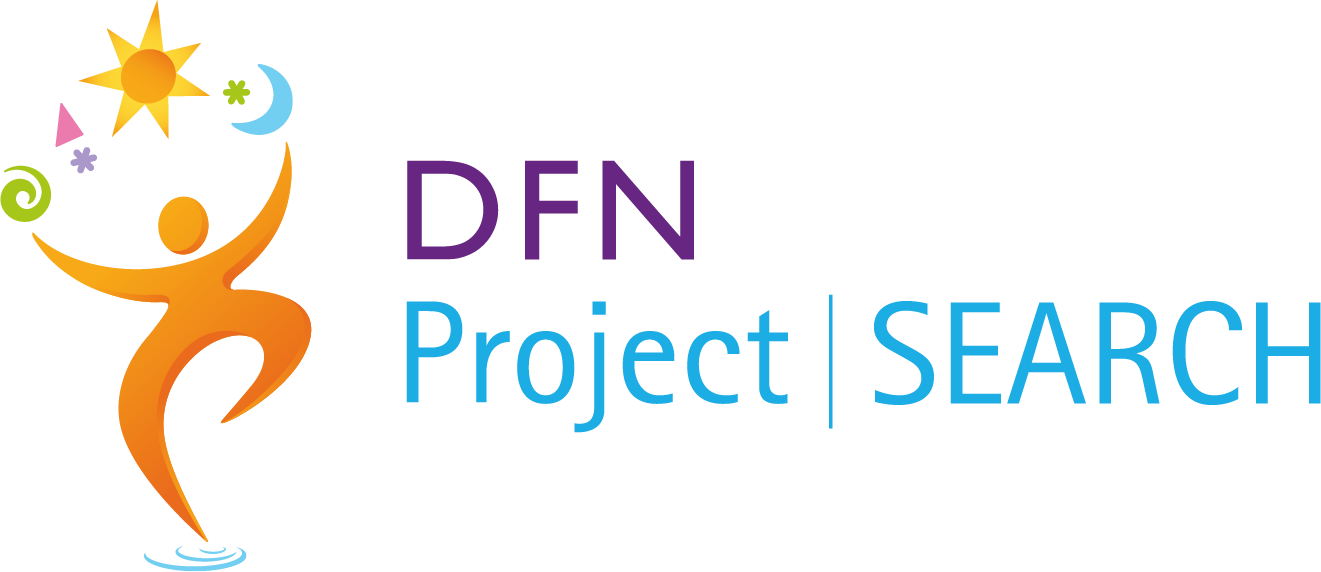DFN Project SEARCH closes the gender gap in the transition-to-work sector
DFN Project SEARCH has published a new report today highlighting how the gender pay gap for young women with SEND who take part in their supported internship programme is consistently narrower than the national average.
The report, titled Towards Full Gender Parity – DFN Project SEARCH is published during Neurodiversity Celebration Week and offers a set of recommendations for reaching gender parity in the workforce for young women with a learning disability or autism. The report is particularly relevant in the wake of the Chancellor of Exchequer’s Spring Budget announcement of investing £3 million into Supported Internships for young people with SEND who do not have an Education Health and Care Plan, which is often the case for young women[i].
The report is the culmination of a year-long research project by DFN Project SEARCH that analysed data between 2016 and 2021.
It highlighted that although young women with SEND face the same societal challenges as their peers including stereotypical stigma and bias, the resulting gender gap in terms of wages, working hours and employment rates for those who completed DFN Project SEARCH supported internships programmes is consistently narrower than the national average. This is thanks to the dedicated support that host businesses and interns are provided during the programme.
Claire Cookson, CEO of DFN Project SEARCH explains: ‘We already knew that young women we support often bucked the national gender gap trend securing great employment opportunities just like all young adults we work with, and at times earned more than men. But we really wanted to drill down into our data to see how that gap could be reduced further towards full gender parity and help inform positive social change. We paid very close attention to employment rates and working hours and identified the best evidence-based strategies to reduce this gap in these areas.’
Data released in today’s report confirms that strategies applied across all DFN Project SEARCH supported internship sites have been successful and with the correct interventions, young women and their employers can successfully tackle gender gap issues. The latest figures from more than 100 organisations that run DFN Project SEARCH programmes show:
- Women supported by DFN Project SEARCH programmes had proportionally higher employment rates than women in general in the UK, and also that the gap in working hours and wage was much smaller at DFN Project SEARCH than in most regions in the UK;
- The weekly hours of work for women and men employed by DFN Project SEARCH’s host businesses were almost exactly the same;
- The overall working hours’ gap within the programme dropped from 4 hours to 1 hour since the research was initiated in 2021.
Based on the report’s findings and their wider expertise in effective employment strategies, DFN Project SEARCH is sharing a set of guidelines for all organisations working in the transition-to-work sector to help ensure gender parity in employment:
- Provide local authorities, businesses and supported employment partners with a breakdown of their outcomes by gender (as well as ethnicity and primary disability), to help monitor any potential gaps.
- Share successful practices in the public domain to recruit more women into your programmes and promote transition to employment from an early age.
- Take advantage of courses on how to identify and address unconscious bias.
- Engage with families to raise their expectations and dispel worries so they can better support young people.
- Closely engage with employers, both within your programmes and external to it, to improve their outcomes.
- Engage with key stakeholders, in and outside of Government, to review Education and Health Care Plan assessments so that more young women are able to receive them.
- Investigate complex findings – the gender gap is the result of contextual and societal challenges that warrant careful consideration.
Commenting on the report findings and recommendations, Claire Cookson added: ‘I am really pleased to say that the research confirms we made excellent progress in reducing the working hours and employment rate gap for our female interns. I hope the report, and our recommendations, can kick-start a cross-sector conversation on achieving gender parity in the transition-to-work sector and beyond.’
For more information, contact us.
[i] https://assets.publishing.service.gov.uk/government/uploads/system/uploads/attachment_data/file/1082518/Special_educational_needs_publication_June_2022.pdf
